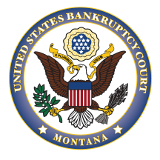What is an adversary proceeding?
An adversary proceeding is the bankruptcy court’s version of a civil action (a lawsuit). An adversary proceeding is opened by filing a complaint asking the court to rule on an issue related to a bankruptcy case. The adversary proceeding is given a new case number that is separate from the number of the associated bankruptcy case. Further filings in the adversary proceeding are filed under the adversary proceeding number.
How do I file a complaint?
Adversary proceedings are governed by Part VII of the Federal Rules of Bankruptcy Procedure (FRBP).
-
FRBP 7001 lists types of proceedings that must be filed as adversary proceeding complaints, rather than as motions or notices in the bankruptcy case. Click here to see the rule.
-
The following is a list of some, but not all, actions that must be brought by adversary proceeding:
-
Proceeding to object to or revoke the debtor’s discharge under 11 U.S.C. §§ 727 or 1328, except for a motion objecting to discharge under §§ 727(a)(8), 727(a)(9), or 1328(f). See FRBP 4004(a) for filing an objection to discharge.
-
Proceeding to determine the dischargeability of a particular debt under § 523.
-
Proceeding to revoke confirmation of a plan in chapters 11, 12, or 13 under §§ 1144, 1230 or 1330.
-
Proceeding to subordinate a claim or interest (other than as part of a plan) under § 510.
-
-
-
FRBP 7003 and 7004 provides that an adversary proceeding is commenced by a person or entity filing a complaint that seeks relief against one or more parties.
-
A plaintiff commences an adversary proceeding by filing a complaint with the clerk’s office, filing a completed Adversary Proceeding Coversheet Official Form 1040, filing a proposed summons B2500A -Summons in an Adversary Proceeding and paying the fee to file a complaint (a fee is required in most situations).
-
Complaint
-
FRBP 7003 provides that Rule 3 of the Federal Rules of Civil Procedure applies in adversary proceedings. Rule 3 provides that a civil action is commenced by filing a complaint with the court. Form 416D provides a caption for use in adversary proceedings.
-
The complaint should include the following sections:
-
Jurisdiction: Explain why the federal bankruptcy court has power to adjudicate or make an official decision about your case.
-
Venue: Explain why the court location or district (e.g. District of Montana) is the proper place to file your case.
-
Parties: Identify the plaintiff and defendants in the case.
-
Statement of Facts or Factual Background: Explain the relevant facts of your case.
-
Claim(s) for Relief: List your legal claims (also called “causes of action”).
-
Request for Relief: Explain what you would like the court to do.
-
-
-
Cover Sheet
-
The Adversary Proceeding Cover Sheet must be completed and signed by the attorney or party filing the complaint. Use Official Form 1040 for this filing.
-
The form must contain the name, address and telephone number of each party to the adversary proceeding, together with the name, address and telephone number of each party’s attorney, if known.
-
-
Proposed Summons FRBP 7004
-
The proposed summons must be completed and filed. A form summons is available here. The Clerk of Court will issue the final summons.
-
-
Filing Fee
-
See the Court’s Fee Schedule for the applicable filing fee.
-
-
-
The plaintiff serves the complaint along with a summons on all defendants, using a proper service method and service deadline found in FRBP 7004.
-
Defendants can file a variety of responses.
-
A host of other procedures are available to all plaintiffs and all defendants, including taking discovery. These are contained in the Part VII rules.
-
-
FRBP 7008 and FRCP 8 contain provisions for general pleading.
-
FRBP 7009 and FRCP 9 contain provisions for special pleading.
-
FRBP 7010 and FRCP 10 contain provisions for the form of pleadings.
Seeking legal advice is recommended
It is highly recommended that legal advice be obtained from an attorney before filing an adversary proceeding complaint.
